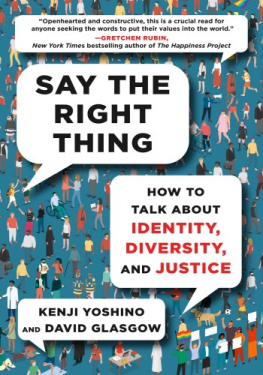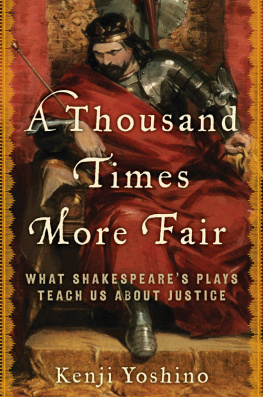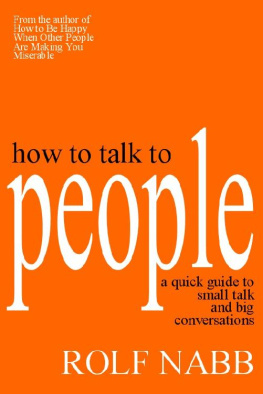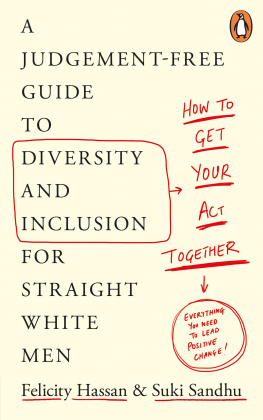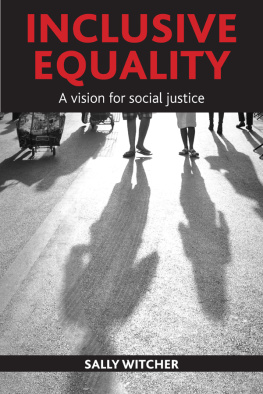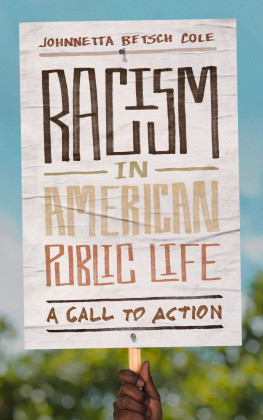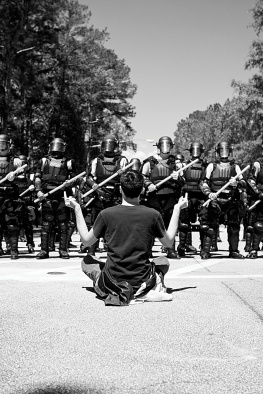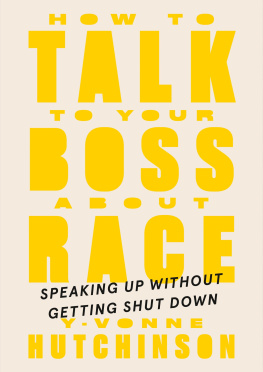Thank you for downloading this Simon & Schuster ebook. Get a FREE ebook when you join our mailing list. Plus, get updates on new releases, deals, recommended reads, and more from Simon & Schuster. Click below to sign up and see terms and conditions. CLICK HERE TO SIGN UP Already a subscriber? Provide your email again so we can register this ebook and send you more of what you like to read. You will continue to receive exclusive offers in your inbox. For Ron, Sophia, and Luke (KY) For Andrew, Hugo, and Theodore (DG)
Authors Note
This book is a work of nonfiction. Certain names and characteristics have been changed. For ease of reading, we also used the pronouns we, us, and our to describe experiences weve had either individually or together in our professional capacities at the Meltzer Center for Diversity, Inclusion, and Belonging.
Introduction:
The Impossible Conversations
T his book is about how to have better conversations about the social identities we all hold. While we teach people to talk across their differences in our professional lives, the roots of this project are deeply personal.
We are both gay men who spent our formative years in the closet. During that time, we were desperate to talk about our own identities, but the words felt unspeakable, even to the people who mattered most in our lives. That suffocating silence led us to search for a more powerful way of communicatingone where we could speak and expect to be heard. Perhaps unsurprisingly, we both became lawyers.
Compared to the silence of our youth, the law felt wonderfully loud. It could settle disputes, compensate the injured, and fix systemic problems for millions of people. It seemed like the form of conversation that could most tangibly address injustice not just for LGBTQ+ individuals but for all outsiders who struggle to be heard.
Over time, however, living in the law showed us its limitations. Law can lay the foundation of an inclusive society, such as by banning racial discrimination in housing or by mandating equal pay for women. But bias occurs in interactions so infinite and infinitesimal that the law will never reach them all. Every day, students of color challenge prejudice in the classroom, women disclose experiences of sexual harassment, employees with disabilities ask their bosses for accommodations, and transgender teens come out to their families. We know firsthand that for vulnerable people, such interactions can be devastating when handled poorly, and transformative when handled well. Importantly, these conversations will keep happening whether the laws on the books are strong or weak.
This realization led us into diversity and inclusiona field dedicated to helping individuals and organizations build cultures where everyone has a sense of belonging. We still take pride in being lawyers and continue to advocate for legal reforms, as we believe the law is an indispensable tool for securing basic rights. But we also want to do the work that law cant do on its own. Together, we founded the Meltzer Center for Diversity, Inclusion, and Belonging at NYU School of Law. Teaching people to have better conversations about identity, diversity, and justice is a critical part of our centers mission.
As we reflect on our young adulthood, we still remember every single one of the conversations where we came out as gay to the people we loved. Today, we often find ourselves on the other side of these critical conversationsas the people seeking to offer support rather than to receive it. Knowing the stakes of these interactions, we try to be good allies to women, transgender individuals, people with disabilities, people of color, and others who come to us. Our own failures in these current conversations have given us more sympathy for the people who fumbled when they talked to us all those years ago about our gay identities.
Because weve learned from our mistakes and seen others do the same, weve become confident the art of identity conversations can be taught and learned just like any other skill. We now hope to impart that skill to you. What follows is a distillation of our years of work on how to say the right thing.
Identity Conversations Are Difficult
Conversations about identity, diversity, and justice are some of the thorniest human interactions of our time. Consider these four real-life conversations:
A white male leader hosts a forum at his company about how non-Black employees can support their Black colleagues. In his opening remarks, he says he can relate to what Black people endure because he grew up Jewish in New York City and kids taunted him at school. He believes hes displaying empathy. His employees think hes out of touch. A woman is grocery shopping with her toddler son when they come across a baby girl with a medical condition that makes her skin red and scaly. The toddler yells: Why is that baby so red?! Mortified, the woman shushes her son and frog-marches him to the next aisle. The babys father feels hurt. He wishes the woman had acknowledged his babys condition openly and calmly. A millennial woman asks her boomer uncle at a family gathering to stop commenting on her friends physical attractiveness. He offers a barrage of defenses: They were compliments, Other women like the attention, and I have a wife and daughters; Im not a sexist. The woman leaves the conversation disheartened. The man leaves exasperated that younger generations take offense at everything. A man accidentally uses the pronoun he instead of she to refer to a classmate who is a trans woman. He apologizes profusely, saying he still grapples with the privilege of being cisgender (having his gender identity match the sex assigned at birth). He repeatedly insists hes the worst. The classmate finds the apology excessive. She wishes hed said sorry once and moved on.
Such conversations have long created discomfort for individuals from nondominant groups, including women, people of color, LGBTQ+ people, and disabled people. They get frustrated that people on the dominant side of identity conversationsmen, white people, straight people, cisgender people, nondisabled peopledont know enough about the issues, dont bother to educate themselves, get defensive when challenged, or opt out of conversations altogether. Nonetheless, nondominant group members often keep their concerns to themselves. Ive been having conversations about race for decades, a Black woman colleague told us. In every single one, my priority has been keeping white people comfortable: How will they react? Will they get offended? Will they retaliate against me?
Whats new about the present moment is that, as social psychologist Jennifer Richeson points out, discomfort is being democratizedthe burden previously placed on one side of the conversation is now shifting to both. In times past, the consequences of making a mistake in these conversations felt relatively mild to many in the dominant group, similar to the repercussions for a breach of etiquette. Now such individuals are in a new era. They wonder: What if I hurt someone I care about? What if I get canceled?
Technological developments, including the rise of social media, have amplified these concerns. Private conversations can be recorded on cell phones. Text messages and emails can be forwarded far beyond their intended audiences. Fleeting thoughts, often stripped of nuance and context, can become part of a permanent record after theyre tweeted and retweeted to millions of people. As speechwriter Jon Favreau notes, social media forces everyone to become politicians, crafting careful statements about their beliefs that then get picked apart by observers.
We welcome the democratization of discomfort. It jolts people to wake up to the inequities in their communities and rise to challenge them. Yet we also see how it causes many to feel disoriented and retreat in fear. As a result, the people who participate in these discussions with the greatest confidence are those on the fringes. At one extreme, well-versed progressives revel in their virtue and virtuosity, crafting intricate mazes of language and manners. At the opposite extreme, right-wing provocateurs relish bulldozing those mazes, taking any blowback as a badge of honor.
Next page
